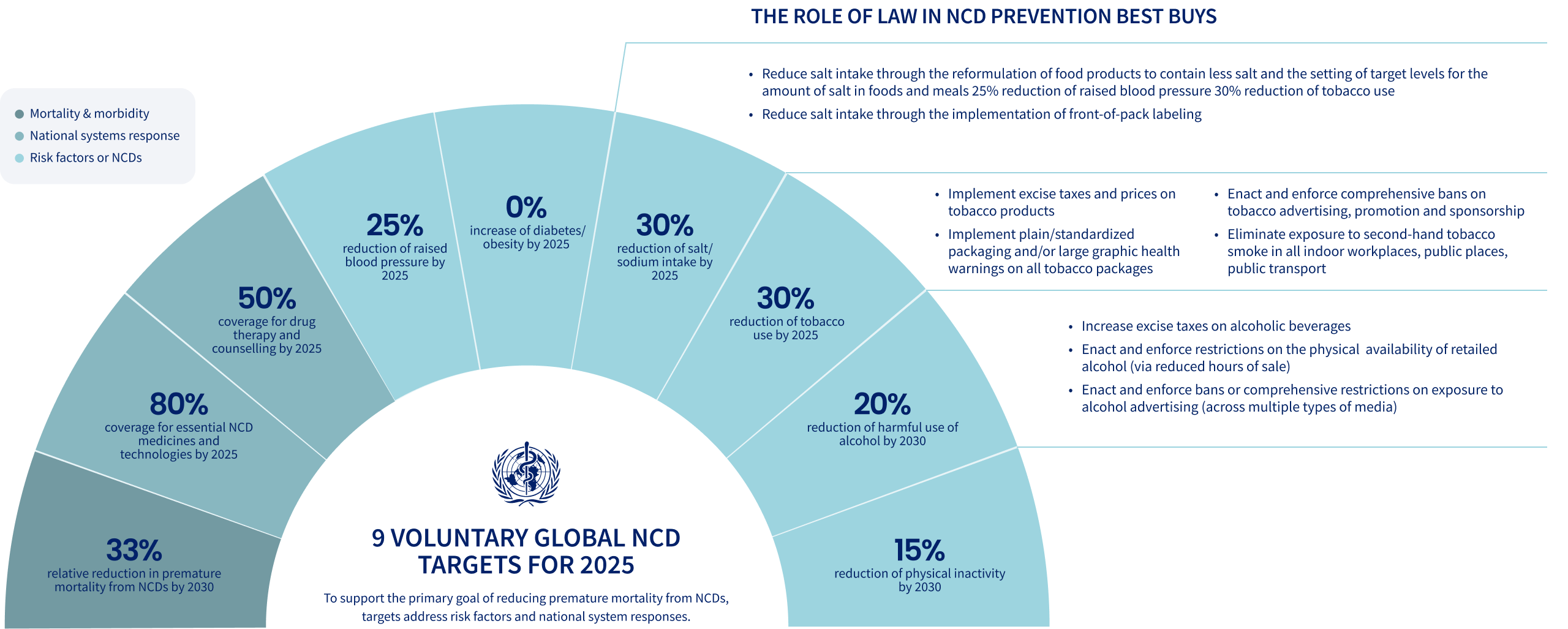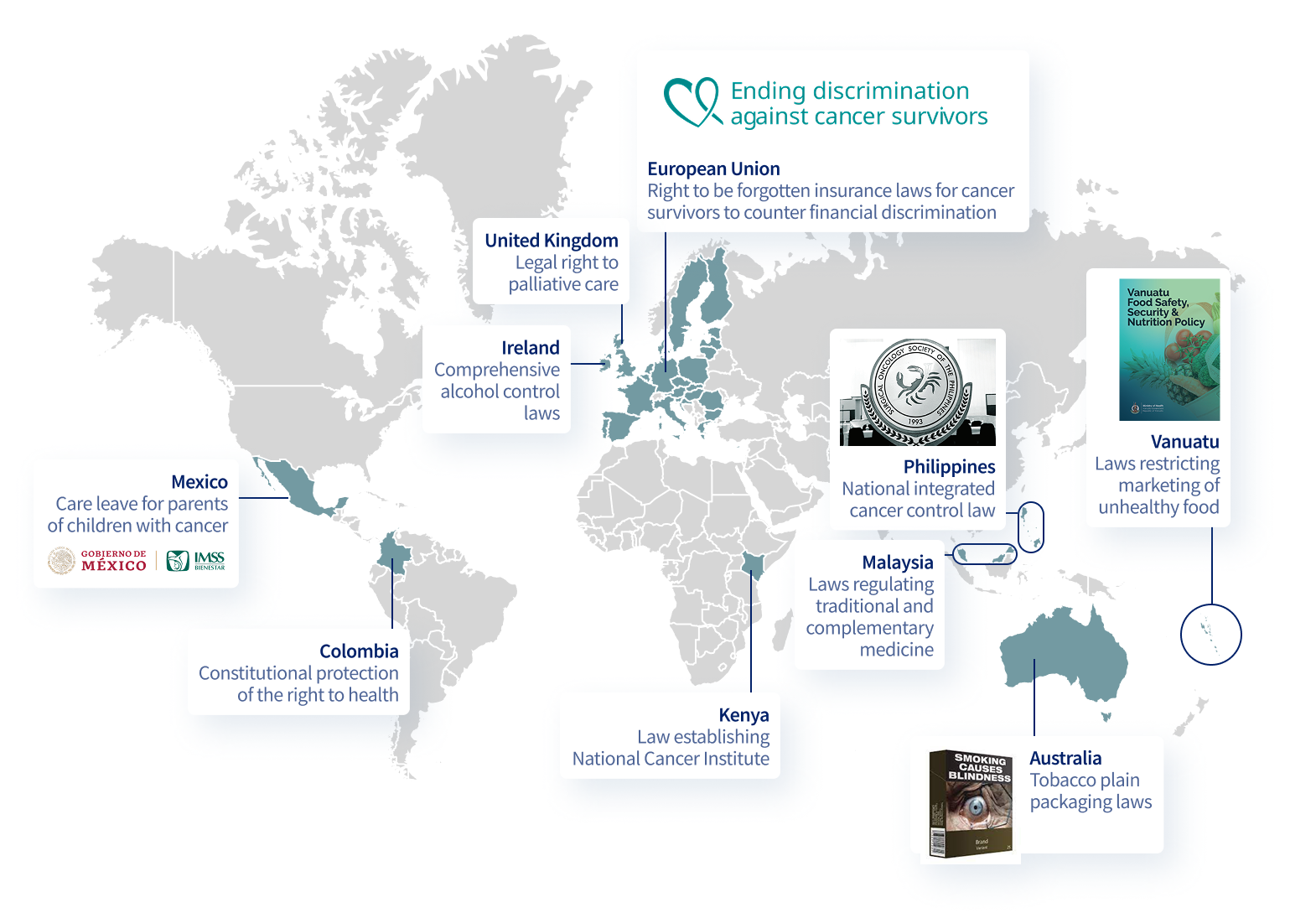Policies and Legislation
Health is a fundamental human right, yet at least half of the global population lacks universal health coverage and does not receive necessary health services.
Law can be a powerful tool to address the burden of cancer – particularly for long-term, systemic change and addressing the underlying inequities and social determinants of health. Law encompasses a wide range of national, subnational, and international instruments and practices, including legislation, regulation, court cases, international agreements, administrative instruments, decrees, and customs. Laws create formal rights and duties on individuals, corporate entities, and governments and are related to but distinct from policies, which are norm-setting tools to guide decision-making (Figure 45.1).
Nine voluntary global targets endorsed by governments in the World Health Organization (WHO) Global Action Plan on Non-Communicable Diseases (NCDs) for 2025-2030
Law is essential to implement a number of the globally agreed 'best buys' for NCDs—the evidence-based interventions considered the most cost-effective and feasible for implementation in low- and lower-middle-income countries.

Laws can reduce exposure to risk factors such as tobacco, alcohol, unhealthy diets, air pollution, or occupational risks. They can also regulate screening, diagnosis, treatment, and care to ensure they are accessible, affordable, safe, and effective for all (Figure 45.2). In addition, law can have a fundamental impact on many aspects of life for people diagnosed with cancer and their families, from employment protection to carers’ rights, access to insurance, and welfare benefits.
Examples of countries that have laws relating to cancer prevention and control

“Of all the forms of inequality, injustice in health is the most shocking and inhumane.”
Many different areas of law are relevant to cancer – and law can operate on many levels, from local to international laws, all impacting cancer prevention and control. Political leaders worldwide have made commitments to use law to reduce the burden of noncommunicable diseases including cancer under various international agreements, including those under the United Nations and World Health Organization.
Using law to protect and promote health requires collaboration across sectors. It also requires being able to manage conflicts of interest and defend against litigation, or threats of litigation, by corporate interests – such as the tobacco, alcohol, and food industries – which is becoming increasingly common.
Strengthening legal capacity to develop and defend laws and policies is an essential aspect of reducing the cancer burden.
